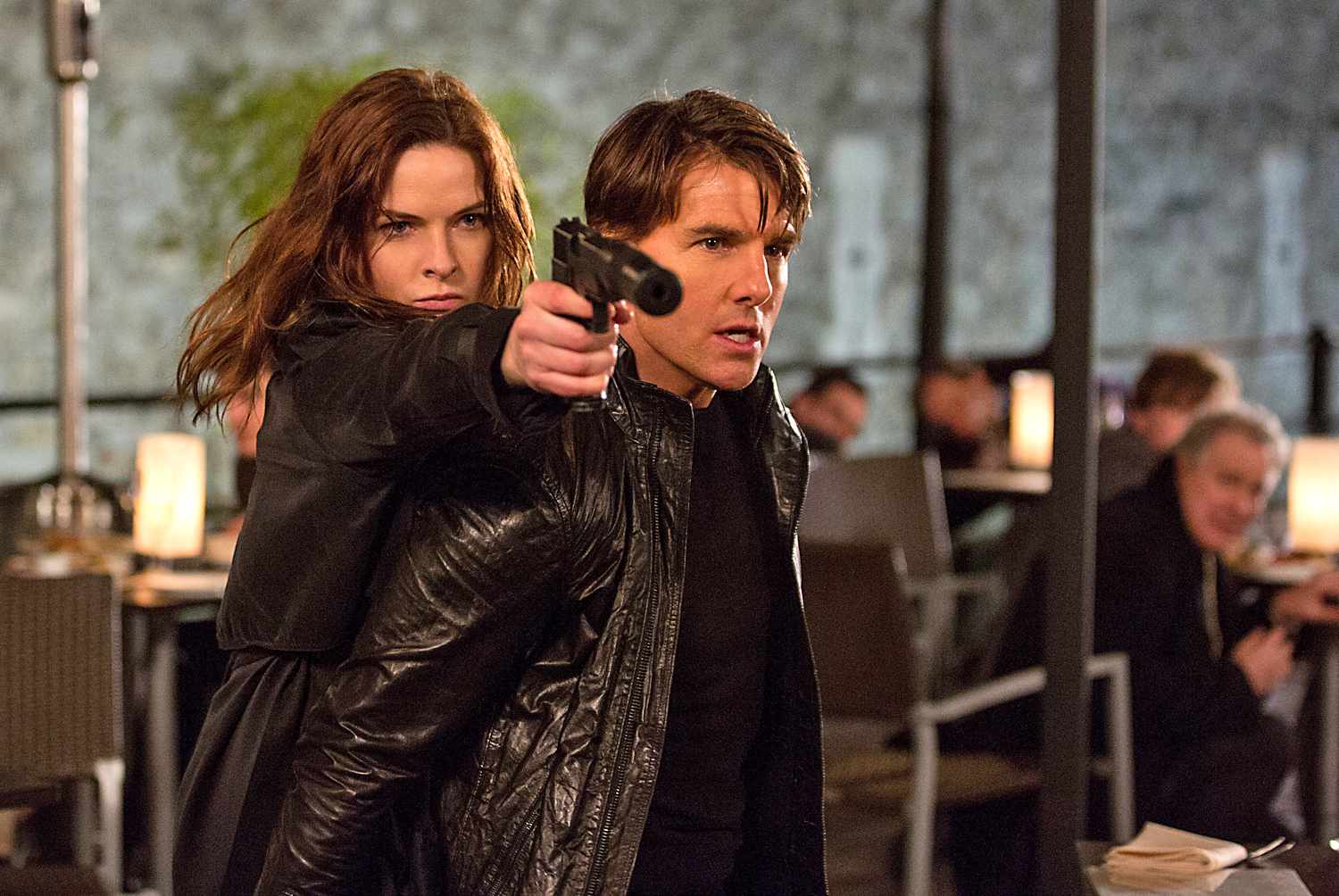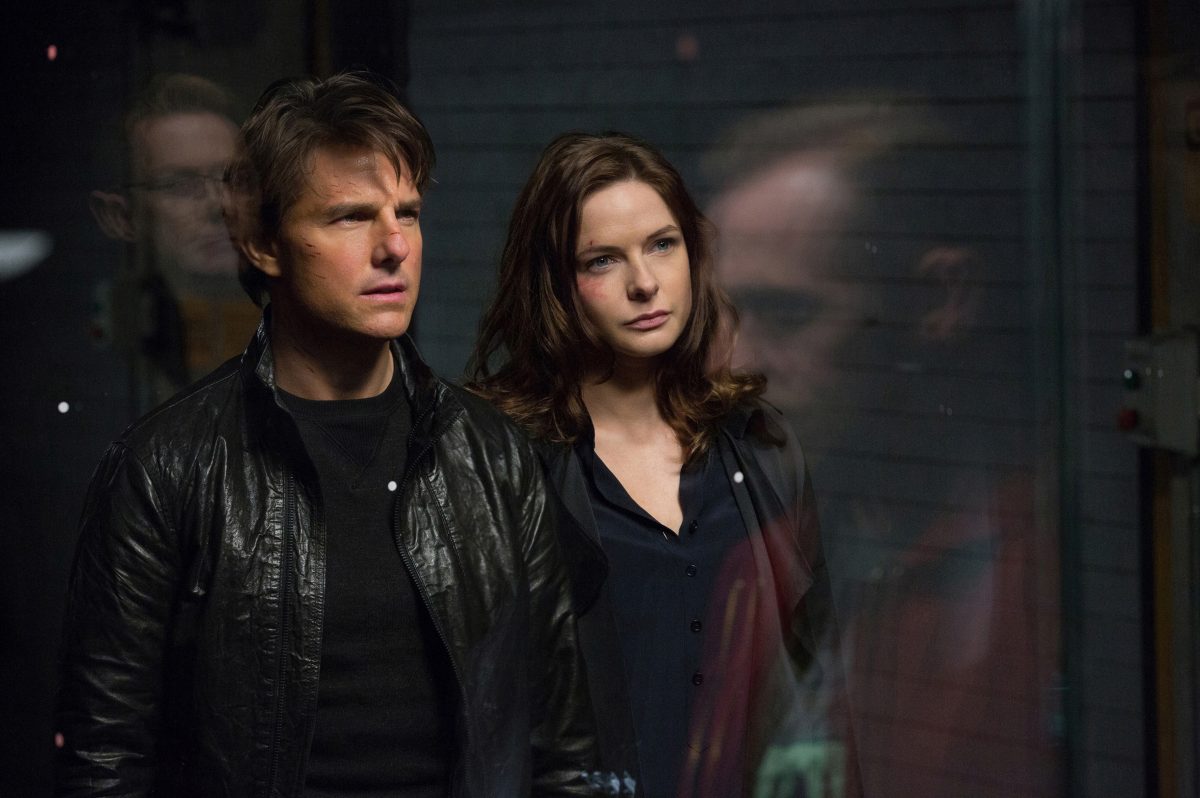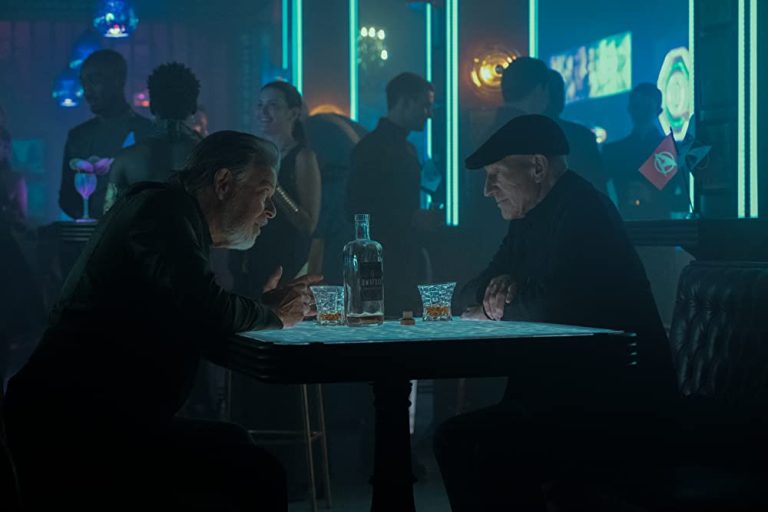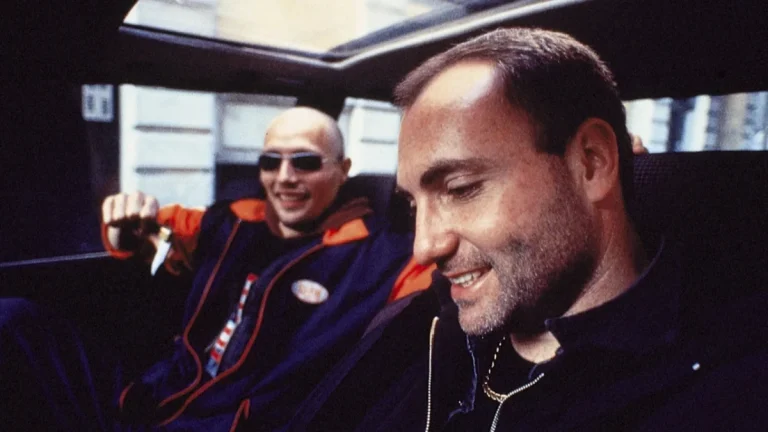The first film in the franchise to place Christopher McQuarrie in the director’s chair, “Mission: Impossible 5 – Rogue Nation” treads a path that feels deeply, unmistakably familiar. But with a high-stakes, high-reward spy thriller, this self-aware—armed with irreverent action and an even more irreverent sense of fan-service—that scent of sameness mutates into something volatile, almost intoxicating. And for once, for all the right reasons.
Yet what’s even more compelling is how McQuarrie’s writing consciously charts its influences: there are deliberate nods to the James Bond universe, a thematic fit for a film that released the same year as the conversation-sparking “Spectre.” These gestures are smartly fused with the energetic, character-rich precision of Brad Bird’s direction in “Ghost Protocol,” preserving the blind loyalty we continue to place in the godlike charisma of Ethan Hunt.
What makes “Rogue Nation” tick, though, is how it builds itself around its many ‘firsts.’ Without directly interrogating the audience’s unwavering belief in its hero, the film begins to map out the institutional murk underneath the surface—the survival instincts, systemic loopholes, and blurry metrics that define espionage at its core. In the figure of Ilsa Faust, we’re given a character potent enough to co-inhabit the IMF’s dominion, a rare female presence fully fleshed out and entrusted with the film’s strongest convictions.
There have always been questions of surveillance and bureaucratic erosion, but this installment walks more boldly into those ethical minefields, suggesting, with remarkable tonal precision, that the forces of ‘good’ and ‘evil’ might simply be two sides of a cold transactional order. It nearly balances them out, without over-explaining. In doing so, the film merges narrative propulsion with aesthetic headiness—and even literal operatic highs.
Here’s an attempt to revisit the film and dismantle it entirely, tracing its glossy grayness on one hand, and, on the other, finding out whether Benji finally got to wear his favorite silicone mask.
Mission: Impossible 5 – Rogue Nation (2015) Plot Summary & Movie Synopsis:
With assistance from Luther Stickell—on a mission in Malaysia—and following Brandt’s instructions, Benji attempts to infiltrate a package locked inside a plane set to depart from Minsk. The plan is for Ethan Hunt to intercept it at the last minute. Ethan successfully seizes the shipment of nerve gas being transported by The Syndicate, a covert organization made up of rogue operatives from intelligence agencies across the globe, which he’s been tracking for some time. At an IMF station in London, the Syndicate sabotages the briefing. Before being knocked out by gas at the Record Shop—where he receives a fake “briefing vinyl”—Ethan is forced to watch a blond man in glasses execute the IMF operative stationed there.
What happens to the IMF?
Meanwhile, in Washington D.C., CIA Director Alan Hunley persuades a Senate committee to dissolve the IMF and assimilate it into the CIA, citing past incidents like the Kremlin’s destruction. Agents Benji Dunn and William Brandt are forced to operate under CIA jurisdiction with heavy oversight. Ethan, having been captured, wakes to find himself being tortured by former KGB agent Janik “Bone Doctor” Vinter. He manages to escape with the aid of a mysterious Swedish woman, later revealed to be an undercover British MI6 agent, Ilsa Faust.
What does Ethan ask Benji to do in Vienna?
Six months later, now a fugitive for refusing to surrender to the CIA, Ethan covertly relays information about The Syndicate to Benji and sets him up with tickets to Turandot at the Vienna State Opera. When Benji arrives, Ethan asks him to help track down the blond assassin from London. Benji soon notices that the Chancellor of Austria is attending the opera with his wife.
What happens to the Chancellor?

At the venue, they encounter Ilsa, along with several other Syndicate agents, all scheming to assassinate the Chancellor. Ethan thwarts the assassination and escapes with Ilsa, only for the Chancellor to be killed moments later by a car bomb. Pursued by Syndicate forces, Ethan and Benji are forced to let Ilsa go in order to protect her cover. Before doing so, Ethan secures all the information he needs to find her again if needed.
Where do Ethan and Benji track Ilsa?
Hunley pins the Chancellor’s murder on Ethan and Benji and orders the Special Activities Division to apprehend or eliminate them. Brandt persuades Luther Stickell to help locate the pair before the CIA does. Luther, digging into Ilsa’s movements, discovers that she was spotted at the Casablanca airport—clear proof of her disavowal, and to him, a sign that she’s dangerous.
Ethan and Benji track Ilsa to Casablanca, where she identifies the blond man as rogue MI6 agent Solomon Lane—the mastermind behind The Syndicate. Together, the three infiltrate an underwater vault beneath a power plant to retrieve a digital ledger, allegedly containing the names of all Syndicate operatives. However, Ilsa bolts with the data to London, outrunning Ethan. She meets her handler, MI6 Chief Atlee, who secretly deletes the data and pressures her to remain embedded within Lane’s operation, reinforcing her coerced loyalty to The Syndicate.
Mission: Impossible 5 – Rogue Nation (2015) Movie Ending Explained:
How does the team get the ledger’s information?
Benji and Ethan are later reunited with Luther and Brandt. Luther reveals that Benji had earlier copied the ledger before Ilsa ran off. The file, however, turns out to be an encrypted British virtual red box, accessible only via the Prime Minister’s biometrics. The team travels to London, but during a rendezvous with Ilsa at King’s Cross station, Lane’s men kidnap Benji and use him as leverage to force Ethan to decrypt and deliver the data.
Despite Brandt’s protests, Ethan agrees. Brandt, already skeptical of Ethan’s unorthodox style, discreetly tips off Hunley. In Oxford, Hunley, Brandt, and Ethan—disguised as Atlee—meet the Prime Minister, who confirms that The Syndicate was originally a covert proposal by Atlee to employ disavowed agents for missions beyond oversight, a plan the Prime Minister had firmly rejected.
Ethan tranquilizes the PM, and he and Brandt extract the necessary biometrics to help Luther decrypt the file. When the real Atlee arrives, Ethan and Brandt coerce him into admitting that he secretly initiated The Syndicate, which was then hijacked by Lane. Atlee also tried to scapegoat Ilsa to cover his tracks.
What does the decrypted file reveal?
Upon decryption, it’s revealed that the file doesn’t hold Syndicate names but grants access to £2.4 billion across multiple accounts. Ethan, realizing that Lane intends to use this fortune to bankroll his operations, destroys the data. At the meeting spot designated by Lane, Ethan finds Benji rigged to a bomb and equipped with a headset and camera contact lens, acting as Lane’s eyes and voice. Ilsa is present too. Ethan tells Lane he has memorized the decrypted data and offers himself in exchange for Benji’s life.
Benji escapes after Lane disarms the bomb remotely, while Vinter’s men chase Ethan and Ilsa through the Tower of London. Ilsa kills Vinter, and Ethan manages to lure Lane into a bulletproof glass cell and gas him unconscious. Having witnessed Ethan’s success firsthand, Hunley returns to the Senate committee and claims that their previous session was a covert setup to help Ethan expose and dismantle The Syndicate. His testimony convinces the committee to reinstate the IMF. Afterward, Brandt formally welcomes Hunley as the new IMF Secretary.
Mission: Impossible 5 (2015) Movie Themes Analyzed:
The Architecture of Paranoia

While the erosion of trust and embers of betrayal have long powered the engine of the Mission: Impossible franchise, “Rogue Nation” confronts that terrain more head-on than ever before—so much so that paranoia becomes not just an undercurrent, but a fully legible structure within the narrative.
At the most visible end of that spectrum lies Ilsa Faust’s trident of allegiance—Atlee, Lane, and Hunt, all of whom she navigates not out of romantic confusion or ideological clarity, but with the kind of hardened agency that comes from being disillusioned. Her loyalty, if it can be called that, is a calculated reclaiming of narrative, identity, and control—an insistence on survival in a world where no institution deserves faith.
But that mistrust travels deeper than one agent. It perforates institutional boundaries, ideological frameworks, and the presumed integrity of global intelligence itself. Faust’s status as a double agent isn’t even deployed as a twist—it’s treated as the inevitable symptom of a world where moral allegiances are contaminated and motivations are permanently occluded.
This ambient disillusionment catches up with Ethan, too. His decisions are repeatedly scrutinized—not just by external forces, but by his own team. Brandt’s caution, Benji’s panic while bomb-strapped in the final act—they all stem from Ethan’s “gambler who gambles too far” impulse. The IMF doesn’t restore order; it thrives in chaos. Its flawed methodology—however thrilling—is built less for balance and more for flamboyant intervention. The institution isn’t restoring the world to peace—it’s ensuring that it stays kinetic enough to demand its return.
The Ethics of Loyalty
What “Rogue Nation” articulates with surprising clarity is the uncomfortable distance between loyalty and complicity, and how often they masquerade as each other. The characters in this film aren’t driven by duty alone—they’re haunted by the debt of it. Ethan’s name may be on the mission file, but it’s Benji who’s strapped to the bomb, and Brandt who walks the tightrope between skepticism and belief. That’s the cost of trust in this world—it doesn’t come cheap, and it certainly doesn’t come clean.
Faust, in contrast, is in constant negotiation with her own allegiance, not because she’s torn between sides, but because both sides have already failed her. Her loyalty is an act of endurance, not conviction. Atlee uses it. Lane manipulates it. Hunt assumes it. But the film never permits her to give it away for free—every act of help she offers is calculated, defensive, and quietly damning.
Even the idea of the IMF itself rests on a certain illusion of moral infallibility—that their gambles are necessary, that their sacrifices are righteous. But Hunley’s arc exists to destabilize that illusion. His late-stage alignment with the IMF doesn’t come from admiration—it comes from evidence. Loyalty, in this world, is earned retroactively.
So the real question the film asks is this: When does loyalty become surrender? When does belief in a person or a cause quietly morph into a refusal to see? In “Rogue Nation,” the mission isn’t what’s impossible—it’s remaining faithful without becoming blind.







